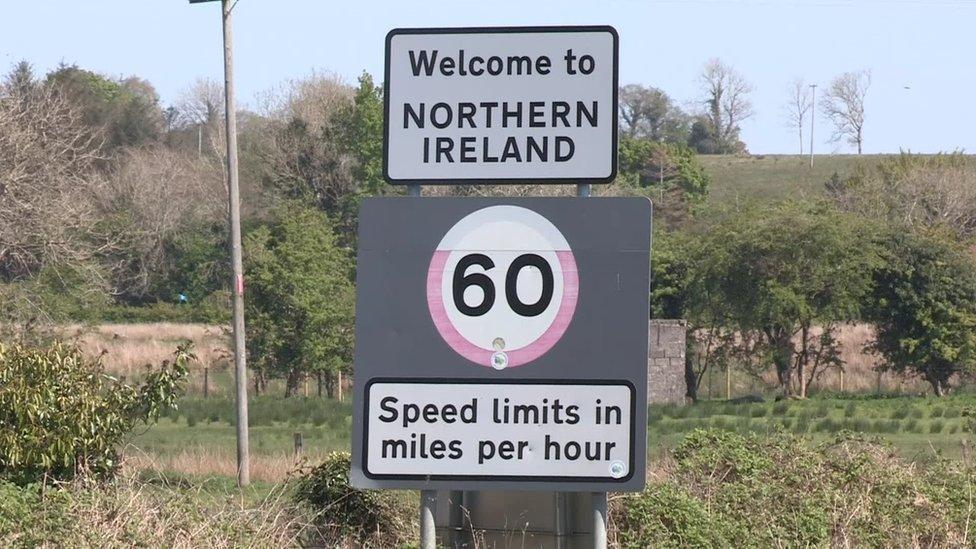HMRC repeats there is no need for new border checkpoints
- Published

The Irish border is a major sticking point in the Brexit negotiations
HMRC has repeated its position there will be no need for new infrastructure at the Irish border, whatever customs model the UK adopts after Brexit.
The UK has proposed two potential post-Brexit customs arrangements.
The first is a customs partnership, where the UK would collect tariffs on behalf of the EU.
The alternative is the 'max fac' option where a combination of technology and administrative arrangements would minimise the need for checks.
HMRC's two most senior officials have been giving evidence to the Commons Treasury committee.
Jim Harra, the deputy chief executive, said max fac would mean the need for customs controls but that those controls could be operated without physical infrastructure at the border.
He admitted that presents "a design challenge".
"If you look around the world, even the most technologically advanced customs borders generally involve some kind of infrastructure."
'Compliance risks'
Jon Thompson, HMRC's chief executive, said Northern Ireland would need "additional facilitation" for customs compared to the UK as a whole.
He referred to the UK government paper, published last summer, which proposed that small businesses trading across the border should be exempt from all customs controls.
Mr Harra said that arrangement would present "a number of potential compliance risks" which would have to be discussed with the EU.
He said the fiscal risks were not very significant and could be managed.
The EU is understood to be sceptical about both the UK customs plans.
Customs arrangements - which are largely concerned with the collection of tariffs - are not the only issue which need to be tackled to guarantee no hardening of the border.
'Cost to businesses'
There is also the issue of EU product standards which are governed by the rules of the single market.
The EU has particularly strict rules on the import of food products which can only enter through border inspection posts and are subject to checks.
Mr Thompson also said max fac model could cost businesses "somewhere between £17bn and £20bn" because of customs declarations.
By contrast the 'customs partnership' could cost up to £3.4bn, but the net cost could be zero under some circumstances.
- Published23 May 2018